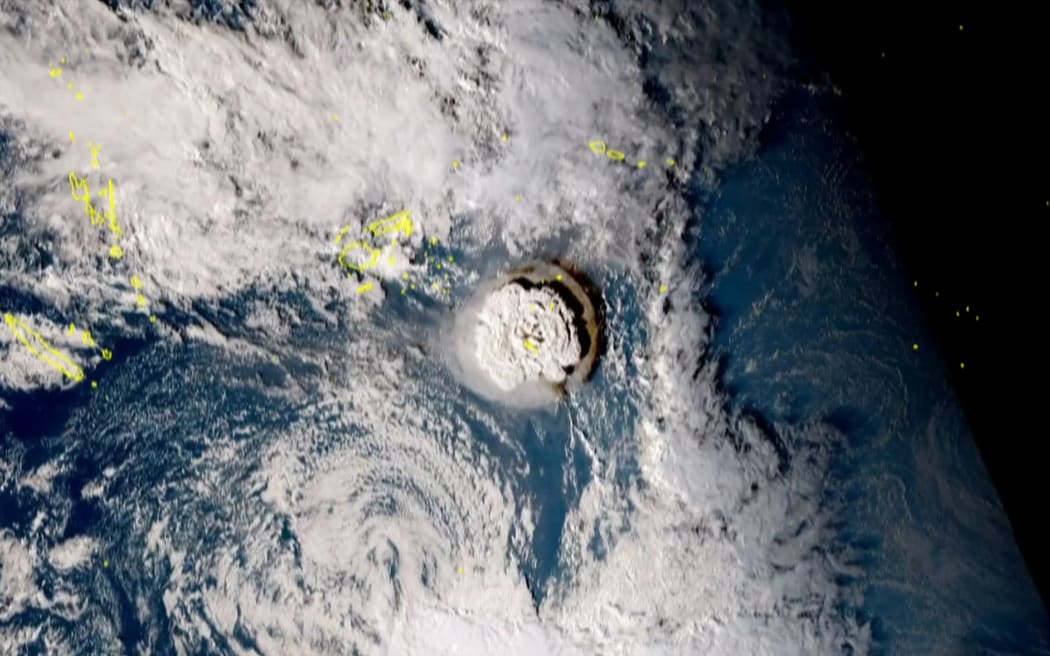The eruption of Hunga Tonga Hunga Ha‘apai, just north of Tonga’s main island, surprised scientists. The underwater volcano had erupted a few times in recent years – but only small, localised outbursts. What happened in January was on a whole other scale – blanketing the Tongan archipelago in ash, and sending tsunami waves across the Pacific.

Photo: AFP / National Institute of Information and Communications
Follow Our Changing World on Apple Podcasts, Spotify, Stitcher, iHeartRADIO, Google Podcasts, RadioPublic or wherever you listen to your podcasts.
“When I heard about this one, I wasn't expecting anything near as big as what actually happened,” says Dr. Emily Lane, a tsunami expert at NIWA.
The tsunami in particular was unprecedented: most tsunamis are caused by earthquakes, not volcanoes. Plus, those tsunamis that are caused by volcanoes tend to only have effects within a few hundred kilometres. But Hunga Tonga Hunga Ha‘apai’s waves radiated as far as Japan and South America, and tsunami activity was even detected in the Caribbean and Mediterranean. What made this tsunami go global?
Hunga Tonga Hunga Ha’apai’s secret superpower lies in the air pressure shockwave it produced, which circled the globe. This shockwave supercharged the existing tsunami waves, giving them the energy and staying power to travel further than usual.
Plus, the air pressure wave can travel over land, allowing it to sweep across distant oceans like the Mediterranean and Caribbean, warping the sea surface and instigating detectable tsunami activity in these far-flung places.
But, says Dr. Colin Whittaker of the University of Auckland, there are more complexities underlying volcanic tsunamis, and we don’t understand them – or the risk they pose – particularly well.

